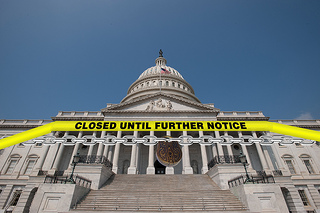Germany’s New Textile Alliance Faces Resistance

Germany is pushing to improve its clothing supply chain by making processes more socially responsible and ecologically sustainable. The Minister for Economic Cooperation and Development in Germany, Gerd Müller, launched the Textile Alliance in Berlin this October. However, some businesses don’t want to participate and the resistance could mean a slow adoption rate.The Textile Alliance aims to improve environmental practices at every checkpoint in the textile supply chain — starting in the cotton fields and moving through the fabric dyeing process, distribution, and retail. Additionally, the Textile Alliance seeks to improve wages, end child labor, tighten safety standards across the industry, and reduce the environmental impact of the textile supply chain.
Textile companies in Germany are highly encouraged to join the Textile Alliance, but it is not mandated. 29 textile companies have agreed to participate, and several key textile companies are refusing. The reasons for not participating are varied, but some companies cite that the objectives of the Textile Alliance are unrealistic and not achievable. For instance, asking them to stop using certain chemicals without suitable replacements hurts business.
The Textile Alliance recognizes that a complete overhaul of the textile supply chain industry will be time consuming. To combat this, they’ve created short-term goals to bring the issues up for discussion. They are looking to create a minimum standard for environmental and social practices across the industry. The German Textile Alliance is just the first step and the Ministry hopes that the efforts and ideas of environmental sustainability and social responsibility will spread throughout Europe.
It’s debatable whether Müller’s Textile Alliance is the right approach. Parliamentarian Renate Künast argues that creating a set of mandatory regulations would be more effective than purely voluntary efforts. Either way, Germany’s Textile Alliance brings important issues regarding sustainability and social responsibility in the textile supply chain to light.






